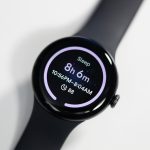The blast early in the morning in Bovenkarspel, 60 kilometres north of the capital Amsterdam, apparently targeted health workers, Prime Minister Mark Rutte said.The incident comes weeks after another testing centre was burned down during violent riots across the Netherlands against a coronavirus curfew.“Police were called at 6.55 am by a security guard from the corona test centre to say that an explosion had taken place. He had heard a loud bang and then saw that several windows of the building had broken,” a police statement said.“Outside the building was a metal cylinder that had exploded. No one was injured in the incident.” North Holland police spokesman Menno Hartenberg said the explosion appeared to be deliberate but that the motive was still being investigated.“It’s not possible that this was by accident, the object was placed there and exploded near the front of the test centre,” Mr Hartenberg told AFP by telephone.He added: “It was a metal object somewhere between a tube and a canister.” Police forensics officers in white overalls were conducting a fingertip search of the area, which was cordoned off, an AFP journalist at the scene said.The explosion caused shock in the Netherlands, which goes to the polls in two weeks in a general election seen as a test of the government’s coronavirus policies.Prime Minister Mark Rutte said workers at the centre who “work terribly hard to keep us safe” appeared to be the targets, adding that it was “really terrible, really scandalous”, according to the ANP news agency.“For over a year now, we have relied heavily on the people on the front lines. And then this. Insane,” added health minister Hugo de Jonge on Twitter.The Dutch GGD public health department said it was “horrified” by the “aggressive and intimidating vandalism.” “Our people must be able to do this crucial work safely. This cowardly act of destruction affects us all,” GGD national president Andre Rouvoet said on Twitter.A bomb squad was sent to determine whether any explosive material remained at the scene, public television network NOS reported.The part of the Netherlands in which Bovenkarspel is located is currently suffering one of the country’s most serious outbreaks, with 81 infections per 100,000 inhabitants, compared to a national average of 27.2, NOS said.The Netherlands has recorded more than one million coronavirus cases since the start of the pandemic and over 15,000 deaths.In January a COVID-19 testing centre was set on fire in the conservative protestant fishing village of Urk as protests broke out over the start of an overnight curfew in the Netherlands.The Netherlands suffered several nights of rioting, the most violent the country has seen in decades.An attempted arson attack on a test centre in Hilversum was also reported later in January.The blast in Bovenkarspel came as the Dutch government on Wednesday began easing its toughest anti-virus measures since the pandemic began, ahead of elections in two weeks.Hairdressers and other contact professions were allowed to reopen after several months of closure.Anger over the Covid measures has been growing in the Netherlands, as well as support for conspiracy theories about the virus.FAKE CHINESE VACCINES SEIZEDPolice in China and South Africa have seized thousands of fake doses of COVID-19 jabs, global police organisation Interpol said on Wednesday, warning this represented only the “tip of the iceberg” in vaccine-related crime.The Lyon-based Interpol said 400 vials — equivalent to around 2,400 doses — containing the fake vaccine were found at a warehouse in Germiston outside Johannesburg in South Africa, where officers also recovered fake masks and arrested three Chinese and a Zambian national.In China, police successfully identified a network selling counterfeit COVID-19 vaccines in an investigation supported by Interpol which has 194 member countries, it said.They raided the manufacturing premises, resulting in the arrest of some 80 suspects and seized more than 3,000 fake vaccines on the scene, it said.Interpol earlier this year issued an “Orange Notice” warning authorities worldwide to prepare for organised crime networks targeting COVID-19 vaccines, both physically and online.“Whilst we welcome this result, this is only the tip of the iceberg when it comes to COVID-19 vaccine related crime,” said Interpol Secretary General Juergen Stock.Interpol said that in addition to the arrests in South Africa and China it was also receiving additional reports of fake vaccine distribution and scam attempts targeting health bodies such as nursing homes.It warned that no approved vaccines are currently available for sale online. “Any vaccine being advertised on websites or the dark web will not be legitimate, will not have been tested and may be dangerous.” GREECE, SERBIA TO EXTEND LOCKDOWN AS VIRUS CASES SURGEGreece on Wednesday, local time, extended its coronavirus lockdown to 16 March and called on additional private health resources as it clocked its highest rate of daily infections this year, health officials said.“We are at the toughest part of this pandemic,” Health Minister Vassilis Kikilias told reporters as he warned that public health resources in the capital were under “unbearable pressure” for weeks.Just over 2,700 new daily infections were announced on Wednesday, a figure Kikilias called the highest this year.“At the rate of new hospitalisations, the health system is stretched beyond its limits in terms of infrastructure and staff,” he said, adding that there was an “important rise” in the more contagious British virus variant.The minister said an army hospital and two private hospitals in Athens would take on additional patients.The civil protection agency also said restrictions would be tightened from Thursday to March 16 to keep people from crossing municipal boundaries for shopping and exercise.Nearly 200,000 people have been infected since the start of the pandemic, and over 430 are currently in intensive care.Meanwhile, Serbia is struggling to contain a wave of new cases triggered by more infectious strains and health experts have urged the government to impose another lockdown despite the country’s massive vaccine rollout, Reuters reports.According to the local health ministry, more than 4,000 people have tested positive since Tuesday, local time, which is more than double the daily number of infections a few weeks ago.EU SENDS PFIZER JABS TO QUELL LARGE VARIANT CLUSTERThe European Union will send 100,000 additional doses of Pfizer-BioNTech vaccines to an Austrian district that has become a hotspot of the South African coronavirus variant, Austria’s chancellor said on Wednesday, local time.A spread of the South African variant could pose a major setback in Europe’s fight against the pandemic both because it is more infectious and because it may be more resistant to the vaccine made by AstraZeneca.The EU ordered about 40 million doses of the AstraZeneca jab. “We will receive 100,000 additional doses (from Pfizer-BioNTech) from the EU to fight the spread in the district of Schwaz,” Austrian Chancellor Sebastian Kurz said at a press conference, adding that the region was “one of the biggest clusters of the South African variant in Europe.” Pfizer-BioNTech’s vaccine, based on a different technology than AstraZeneca, is expected to be much more effective in protecting against the onset of COVID-19 when transmitted through the South African variant.A commission of international scientists, dispatched by the EU, will accompany the vaccination campaign in Schwaz to evaluate its efficacy in eliminating the highly contagious variant.“Our goal is to stymie this large cluster and move towards zero infections, as much as this is possible,” Kurz said, adding that he’d like to “exterminate the variant.” Every adult resident of the district will be offered a vaccine starting 10 March, while the district will continue to be quarantined and only those with a negative Covid-19 test will be allowed to leave.Also on Wednesday, Vienna began administering the first doses of AstraZeneca to those older than 65, hoping to speed up its campaign to innoculate the majority of its roughly 2 million residents.“There is no reason to continue to block this,” the medical director of the Vienna health association, Michael Binder, said Wednesday, describing AstraZeneca as a “valuable vaccine” with “adequate efficacy”.The World Health Organisation has said that the AstraZeneca vaccine could be given to people over 65, but France and Germany refused to authorise it for that age group.French Health Minister Olivier Veron has since reversed course, saying Monday the vaccine would be extended to those between 65-75 with comorbidities.BIDEN SLAMS MASKLESS AS ‘NEANDERTHAL’ US President Joe Biden on Wednesday, local time, blasted states like Texas that are planning to lift COVID-19 restrictions, saying such a move is a “big mistake.” Mr Biden’s stance comes in response to Texas Governor Greg Abbott who said on Tuesday that he was lifting the state’s face mask mandate and would allow businesses to fully reopen on 10 March. Mississippi announced similar moves.Mr Biden at the White House said “masks make a difference” and said “the last thing we need is Neanderthal thinking.”It comes as Mr Biden said every American who wants a coronavirus vaccine will be able to receive one by the end of May – two months earlier than projected.“This country will have enough vaccine supply for every adult in America by the end of May. … That’s progress,” the US President said from the White House.He also announced a “historic” deal for pharma giant Merck to produce rival Johnson & Johnson’s single-dose COVID-19 vaccine to boost supply nationwide.The president also signalled when he expected life could get back to normal.“My hope is by this time next year we will be back to normal,” he said, but added there was much work to be done.Earlier, White House spokeswoman Jen Psaki said the deal with Merck was an “unprecedented historic step”. “The two largest healthcare and pharmaceutical companies Merck and Johnson and Johnson, usually competitors, are coming together to expand production of the vaccine,” Ms Psaki told reporters.The J & J vaccine is the third to receive US regulatory approval for emergency use, but the first that requires a single shot as opposed to two jabs.Merck will dedicate two facilities in the United States to the J & J vaccine build-out, one to manufacture the vaccine and the other to conclude the production process by putting the substance in vials and packing it for shipment, according to a report in the Washington Post.Neither Merck nor J & J immediately responded to a request for comment. The Food and Drug Administration’s greenlighting of the J & J vaccine follows December provisional approvals of those by Pfizer and Moderna.The J & J shot appears less protective than Pfizer and Moderna’s regimes, which have an efficacy of around 95 per cent against all forms of COVID-19. But all three have been shown to fully protect against hospitalisations and death.J & J has said it aims to deliver 20 million doses by the end of March, with 100 million by June — though the US is pushing to expedite that timeline.NED-3314-Johnson-Johnsons-vaccineWhite House Coronavirus Response Coordinator Jeff Zients said the federal government aims to distribute 3.9 million doses of the new vaccine this week — “the entire J & J inventory.” During a visit to a Pfizer vaccine manufacturing facility in Michigan last month, Biden said 600 million doses — enough to cover most of the country — were expected to be ready by the end of July.A major vaccine producer in its own right, Merck had begun work on coronavirus vaccines, but abandoned those efforts in January, saying the immune responses that were “inferior” to successful COVID-19 vaccines.The agreement between Merck and J & J follows on the heels of an accord between Pfizer/BioNTech and French pharma giant Sanofi, which plans to produce 125 million doses at a factory in Frankfurt, Germany after Sanofi’s own vaccine candidate fell short.CHINESE VACCINES DOMINATE GLOBEThe hard-hit Czech Republic is just one of many countries open to or requesting Chinese vaccines while awaiting delayed EU-procured shots.The EU member has the world’s highest infection rate per 100,000 people over the last 14 days and is second only to neighbouring Slovakia in per capita deaths, according to an AFP tally.President Milos Zeman, a pro-Chinese leader, told a local TV station he would welcome China’s Sinopharm vaccine in the country that has recorded over 1.2 million confirmed COVID-19 cases and more than 20,000 deaths, arguing that “vaccines have no ideology”.Hungarian Prime Minister Viktor Orban was vaccinated with a Chinese-made jab days after Hungary became the first EU member to use the vaccine, which has not yet been approved by EU regulators.“I am vaccinated,” said a post on Mr Orban’s official Facebook page alongside photographs and a video showing him receiving a jab from a medical assistant holding a Sinopharm box.Mr Orban blamed the EU for failing to deliver vaccines fast enough, and urged citizens to put aside concerns about the Chinese vaccine while pro-government media have also promoted its benefits.China has said it is supplying “vaccine aid” to 53 countries and exports to 27, but it rejected a request by the Associated Press for the list. Iraq on Tuesday, local time, received 50,000 Sinopharm vaccines donated by China, the health ministry announced, launching a long-awaited vaccination campaign.Health ministry spokesman Seif al-Badr told reporters that the first delivery in the early hours meant inoculations could begin immediately at Baghdad’s three main hospitals, and maybe to some provinces.The health ministry agreed with the Chinese ambassador in Baghdad to purchase another two million doses, with no details on payment or timing.Iranian state media has also reported that 250,000 doses of China’s Sinopharm vaccine were delivered to Tehran, a day after Jahanpour announced that they were donated by the Chinese government.Zimbabwe started its inoculation campaign on February 18 with doses developed by China’s Sinopharm, becoming the first nation in southern Africa to administer the vaccine.Much of South America, from Bolivia to Peru, has welcomed the Chinese vaccine, part of a global pledge by the super power of around half a billion doses donated to more than 45 countries, according to a country-by-country tally by The Associated Press. With China claiming it is able to produce at least 2.6 billion doses of vaccine in 2021, it is estimated that a large part of the world’s population will end up inoculated with China’s shots — not the Western variety.Sinopharm affiliate Wuhan Institute Of Biological Products says its vaccine has an efficacy rate of 72.51 per cent, behind rival jabs by Pfizer-BioNTech and Moderna, which have 95 per cent and 94.5 per cent rates respectively.But there is little public data on China’s vaccines, and the nations receiving the donations may wonder what China might want in future in return. Inoculations with Chinese vaccines have already begun in more than 25 countries, according to the AP tally, based on independent reporting in those countries along with government and company announcements.COVID-19 World NumbersFRENCH DATA SHOWS 75 PER CENT ASTRAZENECA JABS UNUSEDThe French government was under pressure on Tuesday, local time, to accelerate its vaccination program after new figures showed that three in four jabs delivered by AstraZeneca had gone unused.An official in the health ministry told reporters that out of 600,000 doses delivered to health centres since early February, only a quarter of them had been administered.“There is an issue with uptake … because we can see that around 75 per cent of stocks have not been injected,” the official told journalists at a briefing, asking not to be named.On Monday evening, France moved to widen the population eligible for the Anglo-Swedish firm’s jab, which up until now has been only offered to medical and care personnel below 65 years old and people in high-risk categories from 50-64.Previous guidance had prevented the vaccination being offered to anyone aged over 65, but Health Minister Olivier Veran reversed this stance following new data showing the jab’s efficacy.“Now that we have good news about AstraZeneca, we absolutely need to find a place for this vaccine in our vaccination strategy,” the health ministry official said.France’s top health authority, HAS, also changed its advice on Tuesday, saying that pharmacy workers should be able to administer all three authorised vaccinations.It had previously recommended they only have access to the AstraZeneca jab, but not shots by Pfizer/BioNTech and Moderna, which require storage in ultra-low freezers.France’s vaccine strategy has been criticised for being slow and overly bureaucratic, with the country lagging far behind trailblazing neighbour Britain, as well as Germany and Italy, measured by the number of doses administered.International Vaccine EffortsGERMANY PINS HOPE ON ANTIGEN TESTSEurope’s top economy is betting on mass rapid testing and the arrival of vaccines to ward off a new virus surge.A draft of a government document seen by AFP on the eve of crunch talks with regional leaders showed that A draft of a government document seen by AFP on the eve of crunch talks with regional leaders showed that German Chancellor Angela Merkel plans to propose that two households, not exceeding five adults, be allowed to get together from March 8.Under the current rules, one household may only socialise with one other person. The text also proposes that flower shops, book stores and garden centres should be next in line to reopen, after hairdressers were already allowed to open their doors earlier this week.However most other shops and restaurants, as well as leisure, cultural and sporting facilities, should remain shut until March 28, according to the draft.“We mustn’t gamble away the successes we’ve achieved,” it says. The text has yet to be agreed by Germany’s 16 state premiers, who are due to meet with Ms Merkel on Wednesday local time to decide the next steps in the fight against the pandemic.It comes as Ms Merkel faces growing calls to ease Germany’s partial lockdown, with surveys suggesting citizens are losing their patience and businesses are struggling to stay afloat after months of shutdowns.Despite concerns over more aggressive virus mutations, the document says a gradual relaxation of curbs is warranted because of the upcoming ramp-up in vaccine deliveries and the arrival of mass rapid antigen tests.“These two factors will clearly change the pandemic situation,” it reads. Health Minister Jens Spahn has promised to offer all Germans free antigen tests soon at designated places like pharmacies, where results will come on the spot.Germans will also be able to buy cheap testing kits for at-home use soon, after several manufacturers received the regulatory green light.From April, pupils and teachers back in school should be given at least one free test a week, according to Merkel’s document, with companies also facing testing obligations.The text stresses that the relaxation of curbs can be reversed should infection rates spike again.Germany closed bars, restaurants, gyms and cultural centres in November, before adding non-essential shops and schools in December as the country was badly hit by a second COVID-19 wave.NED-1604-How-china-lied-timelineMANHUNT FOR BRAZIL VARIANT CARRIERSBritain on Tuesday, local time, narrowed the hunt for an unidentified person who tested positive for the Brazil variant of coronavirus down to 379 households in southeast England, the health secretary has said.In total, six cases of the P1 coronavirus variant first found in Manaus, northern Brazil, has now been detected in six people in the UK, one of whom cannot be located after they failed to fill in their contact details on a form after taking their coronavirus test.Health Secretary Matt Hancock told the House of Commons on Tuesday that officials had now “identified the batch of home test kits in question”.He added: “Our search has narrowed from the whole country down to 379 households in the southeast of England and we’re contacting each one.“We’re grateful that a number of potential cases have come forward following the call that we put out over the weekend.”Experts warned that based on data from Brazil, the variant was both more transmissible and better at evading antibodies than the UK’s predominant strain which emerged in the southeastern county of Kent last September.Mr Hancock said the UK’s current vaccines had “not yet been studied against this variant” but that work is under way to “understand what impact it might have”.“We do know this variant has caused significant challenges in Brazil,” he added.“So we’re doing all we can to stop the spread of this new variant in the UK, to analyse its effects and to develop an updated vaccine that works on all these variants of concern and protect the progress we’ve made as a nation.”He also warned that there might be a need for a third vaccine dose later in the year in order to combat variants.Danny Altmann, professor of immunology at Imperial College in London, said the public should feel “somewhat worried but not total panic” about the emergence in Britain of the Manaus variant.“It’s not that all immunity is gone, it’s that the vaccines look so much less potent, so there’ll be more people who have low antibody responses where it can break through and get affected,” he told Times Radio.In mid-January, Britain banned flights from South America including Brazil. But the new cases arrived on a flight from Sao Paulo via Zurich around February 10, triggering complaints from opposition parties about gaps in the border protection regime.Britain has Europe’s highest death toll from the pandemic.Next Monday, schools across England are due to reopen to pupils for classroom teaching as part of a staggered return to normality over the coming months.COVID-19 MortalityARDERN TELLS KIWIS TO ‘CALL OUT’ COVIDIOTS Prime Minister Jacinda Ardern urged New Zealanders to “call out” coronavirus rule-breakers on Monday, as public anger built over a series of infringements that forced the country’s largest city back into lockdown.A frustrated Ms Ardern — who has won widespread praise for her pandemic response — said the breaches that led to Auckland being shut down for the second time in a month were intolerable.She said some people involved in the latest outbreak had ignored clear instructions to remain in isolation and failed to fully disclose their movements to contact tracers.“Those individuals are facing the judgement of the entire nation, there are consequences, undoubtedly,” Ms Ardern told reporters.New Zealand has recorded only 26 COVID-19 deaths in a population of five million, but Ms Ardern said everyone needed to co-operate in order to keep the virus in check.“If that means calling a family member or colleague out for not following the rules then we should do that. Do it with kindness, but do it,” she said.The stay-at-home order was imposed in Auckland on Sunday, after it became clear a snap three-day lockdown last month had not halted a cluster of infections in the city of 1.7 million.Concerns centred on a family where the chain of transmission was unclear, although it has since emerged they had contact with infected members of another family in defiance of isolation orders.One of those involved visited a doctor, a college and the gym while awaiting the results of a test that eventually showed he had the virus.Ms Ardern said “we’re all paying the price” for their actions.“Everyone is angry … I totally get that,” she said.“At the same time, how do we make sure people tell us the truth because there is nothing more valuable to us than knowing, in these scenarios, where contact has occurred?” The Auckland cluster currently comprises 15 cases, 12 of them active, and authorities will be closely monitoring any further infections before making a decision on easing restrictions.New Zealand’s strategy is to eliminate coronavirus by following up every community case with extensive testing and contact tracing, backed where necessary by regional lockdowns.Authorities have the ability to take enforcement action against rule-breakers, but have yet to issue a single fine for not wearing a mask on a plane or public transport.Asked if enforcement needed to be more proactive, Ardern said it was an operational matter for the police.“Politicians aren’t the ones that determine enforcement, and that’s rightly so,” she said.“But the provisions exist.”It comes as COVID-19 Response Minister Chris Hipkins told local television network TVNZ on Sunday: “It’s unlikely we wouldn’t see more cases. How many cases at this point we simply don’t know.”NED-1371 Coronavirus Myth BustersRESTRICTIONS ON TRAVEL BETWEEN NZ AND AUSTRALIARestrictions have been placed on green zone travel between New Zealand and Australia as of February 24. These restrictions do not allow people who have been in Auckland in the previous 14 days to travel to Australia.Normal green flight arrangements can continue for people who have not been in Auckland in the previous 14 days.Some states have added additional restrictions for New Zealand travellers, including, Queensland, NSW, Tasmania and Victoria. Professor Kelly said all travellers were advised to check the arrangements in both their place of arrival and place of final destination before they travel.The Australian Government and the Australian Health Protection Principal Committee will continue to work closely with colleagues in the New Zealand Ministry of Health to monitor and assess the public health risk.The Auckland lockdown has disrupted a number of special events due to take place next week, including the Twenty20 International cricket match, which has been moved to Wellington. The match will also be played without spectators.Public venues will be closed for seven days and gatherings outside of bubbles are not allowed.All sports games were also cancelled as Aucklanders were told to work from home and keep children at home with them away from school. Prime Minister Jacinda Ardern said supermarkets will remain open, but travel restrictions will apply to the borders around Auckland.FINLAND DECLARES STATE OF EMERGENCY AS CASES RISEFinland on Monday, local time activated emergency powers as the government prepared to introduce tougher restrictions to stem a rising tide of coronavirus infections.Prime Minister Sanna Marin signalled the move was imminent last week when she warned that controls limiting restaurants to takeaway service would come into force for three weeks from 8 March in some parts of the country.“The government along with the President of the Republic has declared a state of emergency in the country,” Ms Marin told a press conference on Monday.Finland’s constitution requires emergency legislation to enforce such a restriction, and the restaurant proposal will now go before parliament, Ms Marin said.Controls on establishments such as gyms will also be tightened, while municipal buildings including swimming pools and museums have been closed in some areas since November.Although the state of emergency will allow limits to be placed on freedom of movement, Ms Marin said that the government is not currently planning to reintroduce restrictions such as a blockade between the capital region and the rest of the country, which was imposed in March last year.However, she told reporters that such restrictions could be brought in if they are deemed “necessary and proportionate”.The Nordic country has maintained one of the lowest incidences of the virus in Europe, although infections have risen sharply during February, reaching a total of 58,064 confirmed cases and 750 associated deaths in the country of 5.5 million.NED-1370-Coronavirus symptoms comparisonUK HAS VACCINATED MORE THAN 20 MILLIONBritish Prime Minister Boris Johnson has tweeted about the ongoing success of the UK’s vaccination program. In a post he said: “20 million people across the UK have now got the jab — a huge national achievement and a testament to the tireless work of NHS staff, volunteers, the Armed Forces & many more. I urge everyone to get the jab when called. Every jab makes a difference in our battle against COVID.”In Britain alone, already 17 million people have been vaccinated against coronavirus, according to NHS England chief executive Sir Simon Stevens.“Vaccinating 20 million people – including 17 million across England – in a few short weeks shows the NHS vaccination campaign is firing on all cylinders, and looking out to Easter and beyond it’s full speed ahead,” he said.But amid that good news is the report that three cases of the Brazil variant have been found in England, with three additional in Scotland.It is still not known if the vaccines are completely effective against variants of the virus.It comes as Prince William warned that anti-vaccination messages are rife on social media and urged those eligible to get jabs.“Social media is awash sometimes with lots of rumours and misinformation,” the Duke of Cambridge said in video footage released by Kensington Palace on Saturday evening, local time.It showed him and his wife Catherine, the Duchess of Cambridge, speaking to two women who are clinically vulnerable and eligible for first jabs soon.In one video call, a woman called Shivali, who has type 2 diabetes, said she had read a lot of social media posts that made her “a bit nervous” about getting vaccinated initially, while she was now confident about getting the jab.Prince William said: “We have to be a little bit careful who we believe and where we get our information from, especially for those who are clinically vulnerable as well, it’s so important that these vaccinations are done.” “Catherine and I are not medical experts by any means but if it’s any consolation we can wholeheartedly support having vaccinations, it’s really, really important.” Vaccine uptake so far has been “amazing,” the prince said, while the task now is to ensure that younger generations “feel that it’s really important for them to have it.”
Powered by WPeMatico






